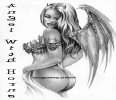- 04 Sep 13, 12:53#372062
A racing car that does not win, is just art
So that you could be enlightened by reading the forum
Sent from my GT-N7100 using Tapatalk 4
Sent from my GT-N7100 using Tapatalk 4

A racing car that does not win, is just art
Discuss the sport you love with other motorsport fans

With fire, brimstone, and the four horsemen?
Sent from my GT-N7100 using Tapatalk 4

Im going to drag the wife to see this. Whilst we are on our wedding anniversary holiday. She WILL like it. Whether she likes it or not.

 Le coeur a ses raisons que la raison ne connaît point.
Le coeur a ses raisons que la raison ne connaît point. 
Im going to drag the wife to see this. Whilst we are on our wedding anniversary holiday. She WILL like it. Whether she likes it or not.

Just watched this, very interesting

It was Jackie Stewart who gave the old Nürburgring a nickname: the Green Hell. He hated the 14-mile circuit in the Eifel mountains. But that wasn't good enough for Peter Morgan. When the writer of Frost/Nixon and The Queen came to create his screenplay for Rush, the new film about the rivalry between James Hunt and Niki Lauda, a more dramatic introduction was needed for the location of Lauda's terrible crash in 1976.
"In Formula One," a TV commentator announces in the film, setting the scene for the near-fatal weekend, "it is known as the Graveyard."
Well, no, it isn't. And it wasn't, even in 1976. Yes, five drivers died there during grand prix meetings. A terrible toll, of course. But at Monza, to take just one example, the equivalent figure was 10 drivers – and more than 40 spectators. These were dangerous and scary circuits but no one in the sport would have been so crass as to call them "graveyards".
Ron Howard, the director of Rush, wants everyone to know that his film is "a movie, not a documentary". Which is the usual excuse, sometimes justified, for manipulating the facts and the structure of a true story to fit the format of a feature film intended to attract a popular audience.
At their best – and Morgan's work on The Queen certainly qualified as an outstandingly brilliant example – such films can illuminate facets of reality. It would be unduly generous, however, to suggest that Rush was brought into existence to probe for deeper truths beneath the surface of its story. What it wants to do is entertain its audience by portraying an historic sporting rivalry in the most vivid way possible, using its £50m budget to turn up the noise and the colour. Its immediate reward has been a series of rave reviews in film magazines from Empire to the Hollywood Reporter.
Countless projects aimed at making films about grand prix racing have failed to get off the ground over the years. But the worldwide success of the Senna documentary of 2010, with its jolting cockpit footage, its brilliant editing and its charismatic hero, may have opened the way for Rush to find an audience beyond the petrolheads.
There are many things in the new film's favour. One is Daniel Brühl's extraordinary portrayal of Lauda, with its harrowing depiction of his hospital ordeal and its hints of the real man beneath the brusque, dismissive surface. Another is the recreation of the racing itself: you would have to be the saddest of anoraks to find it necessary to complain about flaws in the period detail, from the hardware to the circuits, or about the blending of archive film with newly shot footage.
It's hard, however, to ignore fundamental untruths inserted simply to amp up the drama. Undermining the legitimacy of the whole film is the suggestion that Hunt and Lauda detested each other. In fact, they were good friends and far more alike in their appetites than Morgan allows us to know. Instead of searching for the real story, he has gone for the tabloid version.
Unlike Brühl, Chris Hemsworth never succeeds in evoking the real Hunt, settling for the shallowness of the cartoon figure – shagging, boozing, toking, snorting – depicted by the script. The scene in which he savagely beats up a reporter from a British newspaper is not just a fiction but a travesty.
After seeing Rush twice, and feeling vaguely dissatisfied, I went back in time to 1966 and watched Grand Prix, the result of John Frankenheimer's year among the grand prix circus. Already famous for The Manchurian Candidate, Frankenheimer wanted to make a fictionalised film about contemporary Formula One, and spent $9m of MGM's money shooting throughout the season, sometimes permitted to put a car carrying his camera in with the real competitors during practice sessions and, once or twice, at the start of the races themselves.
Not everyone welcomed their presence. "The Ferrari and BRM mechanics were constantly confused by MGM's set of film extras posing as mechanics," the correspondent of Motor Sport magazine noted in his report from Monaco. "Valuable space was taken up by cameras and equipment, the pits were overcrowded, the Brabham team had to become very short-tempered in order to get on with their work, while Team Lotus were being harassed by officials who wanted the pit-front cleared so that Hollywood could do some filming before the race began."
The result, a three-hour epic shown (like Ben Hur or Cleopatra) with an intermission, was a revelation. In those days there were no in-car TV cameras, so a lap of Monaco seen through the lens of a film camera attached to the nose of an F1 car at racing speed was new and thrilling, particularly when seen as part of a magnificent title sequence devised by the great Saul Bass. The cast included such first-rate actors as Yves Montand, Eva Marie Saint, Jessica Walter, James Garner and Brian Bedford, with bit-parts for Toshiro Mifune, Geneviève Page and Adolfo Celi. Oh, and Françoise Hardy.
Robert Alan Aurthur's script included a number of memorable exchanges and surprisingly few clunky bits, most of which occurred when a genuine grand prix driver, such as Graham Hill, was given something to say. Celi, playing the Enzo Ferrari character, had one of the best lines, filmed inside the real Ferrari factory while negotiating with Garner, playing an American driver called Pete Aron: "You confuse me, Aron. And I don't like men who confuse me driving my cars."
Given Morgan's record, it's a surprise that Rush should be so devoid of memorable dialogue. Justifying his occupation, Hunt is made to say: "Isn't that what we're here for? To stare death in the face and beat it? That's the nobility of it. It's like being knights." And when Lauda falls in love, he tells the girl: "Happiness is the enemy. It weakens you. Suddenly you have something to lose." Morgan has made his protagonists sound like characters in a teenage soap opera.
Not all the film's defects are the screenplay's fault. Howard must be blamed for the staggeringly unsubtle jump-cut from a naked Hunt, hard at it with one of his air hostesses, to a screen filled with cylinder-head valves going up and down. At that moment there is a yearning for a moment of sophistication, for the intervention of a poetic sensibility, perhaps for Eva Marie Saint saying "I love you" to Montand, and for his reply – "We will have to discuss the consequences of those terrible words" – as he packs his helmet and gloves, preparing to go out and die on the Monza banking.

Sound like he would have hated the movie Lincoln.




See our F1 related articles too!